Menstrual Garden
Jiabao Li, 2022
Exhibition at Olfactory Art Keller
Menstrual Garden is a scientific investigation and multisensory installation. It contains the smells of fresh menstrual blood, stagnant menstrual blood, and menstrual pain as well as 3D printed sculptures of the ten most ubiquitous proteins found uniquely in menstrual blood and of proteins grown out of stem cells that were found in the artist's menstrual blood.
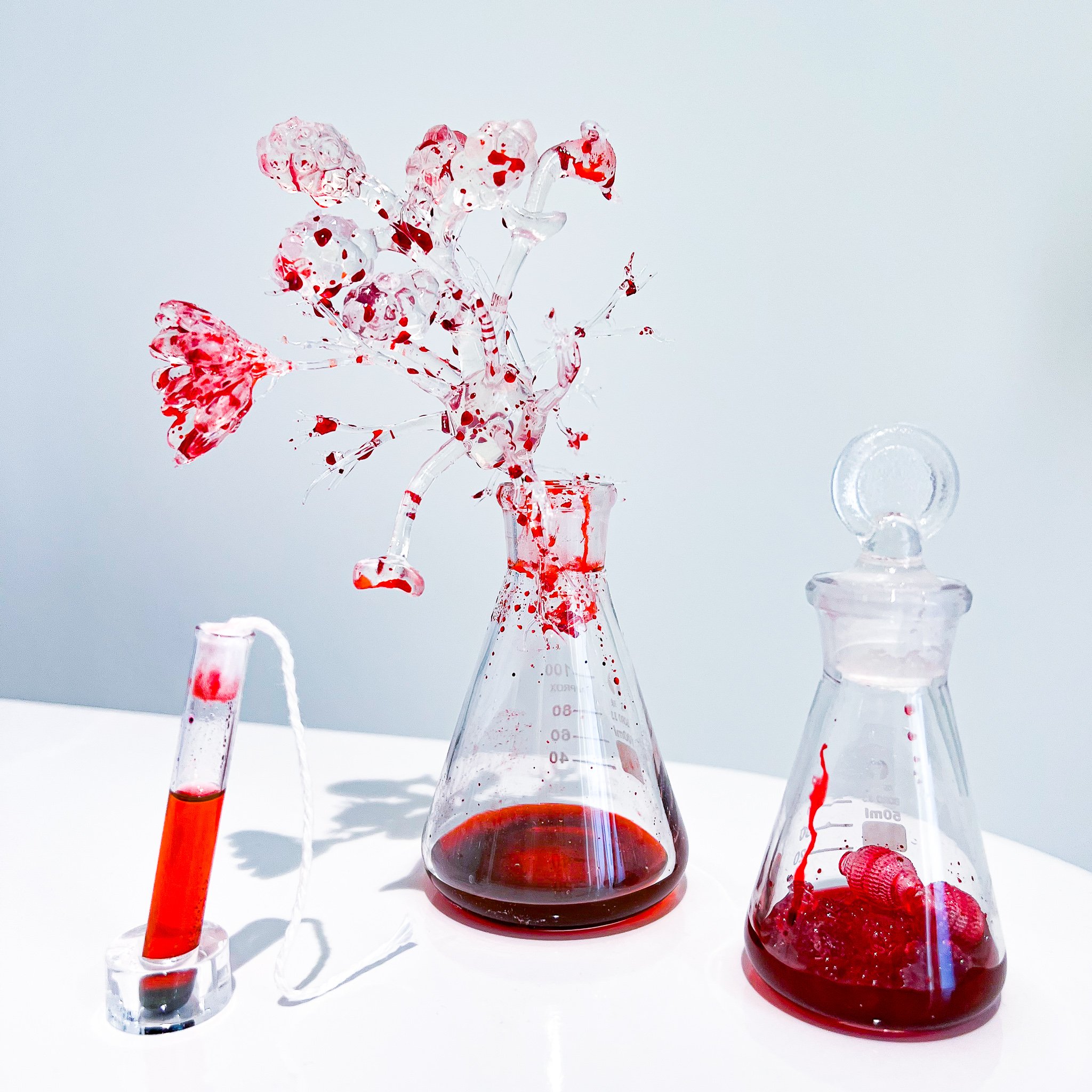
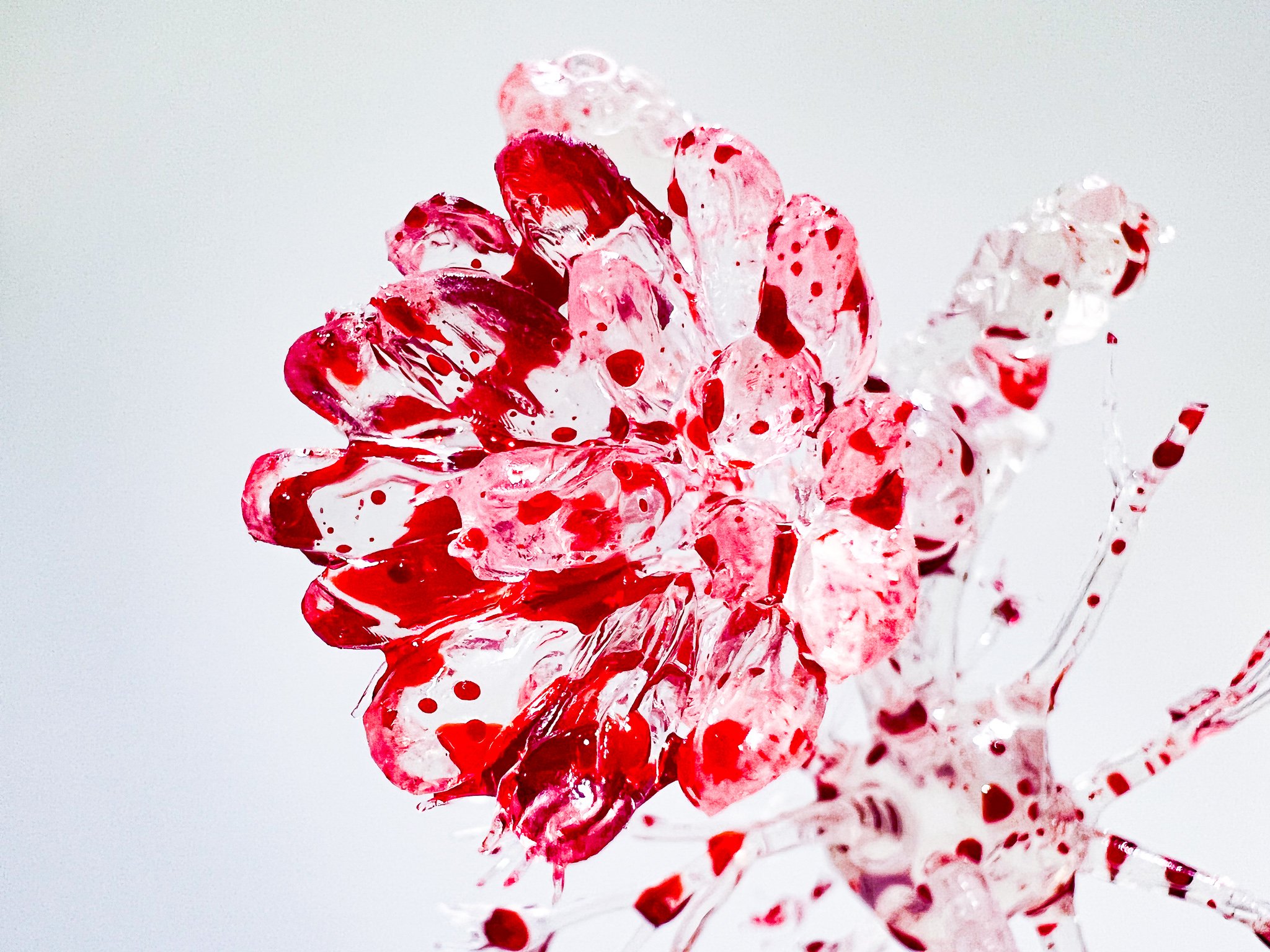
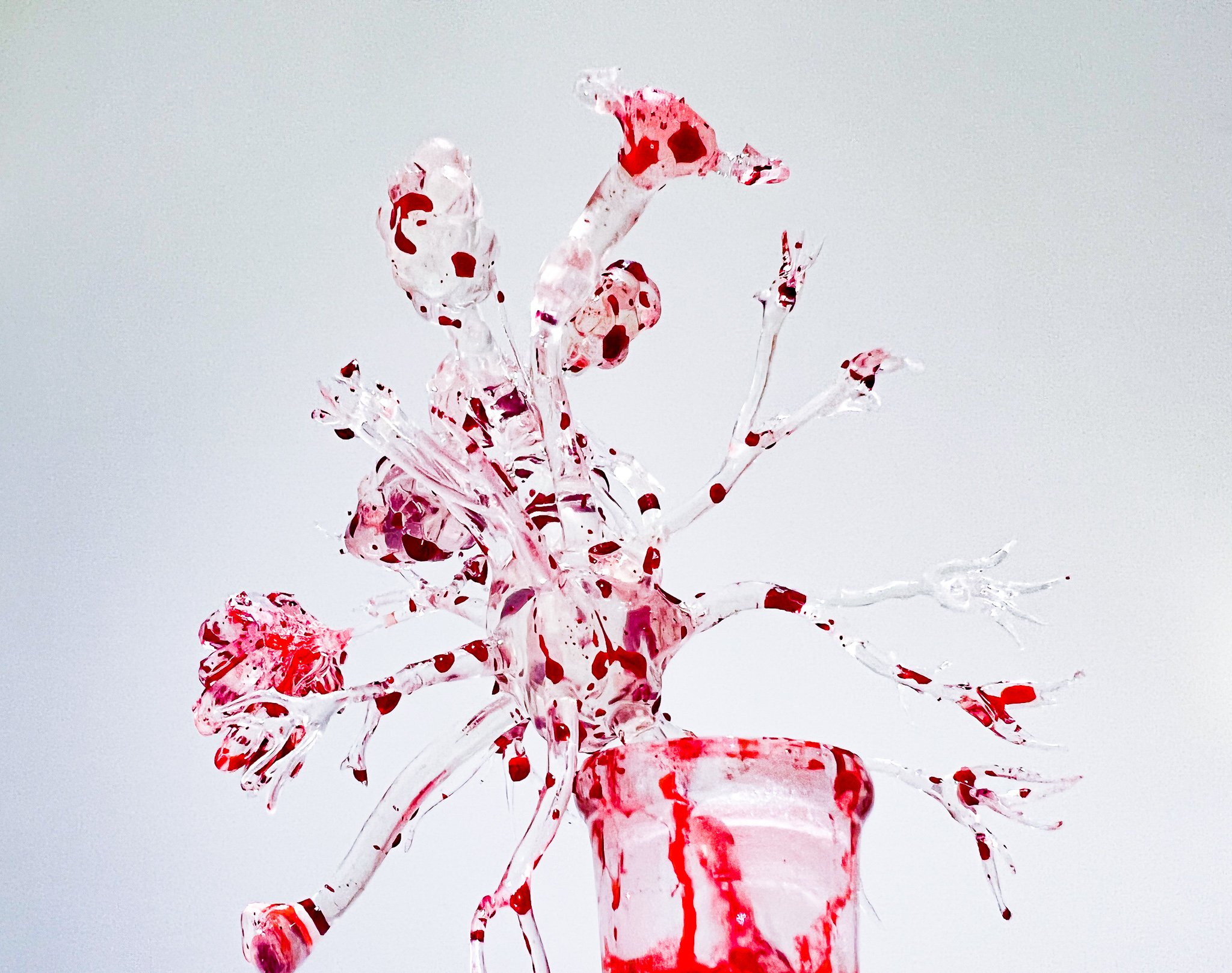
We have been menstruating since the beginning of human life, yet there is very little known about what is in the fluid released by menstruating individuals. So we set out to find what proteins are in menstrual effluent using mass spectrometry. This is the first time anyone has tracked menstrual blood proteins in the same individual over a long period of time. In doing so, we established the first stable menstrual blood proteome. We have found many proteins not seen in venous blood. Some of these proteins protect the female reproductive organs from infection and foster the local microbiome. Others signal to cells to die or transform. Many of the proteins are essential for the way cells come together to form the walls of the uterus or excretions that constitute mucus. Many of those proteins can be linked to fertility, endometriosis, and cervical cancer. Still, others have completely mysterious roles to science, yet are quite prevalent, like the major vault protein, which hides RNA within its vault-like structure for unknown reasons.
In this olfactory piece, the three scent bottles contain the smell of fresh menstrual blood, stagnant menstrual blood, and menstrual pain. One bottle contains the top ten proteins found uniquely in menstrual blood. Another bottle has an organ garden grown out of menstrual blood. Scientists have discovered that cells taken from menstrual blood can be used like stem cells to repair damaged tissue or even grow into new organs. One day, menstruating people could use their menstrual blood for their own treatment. This would overcome a major problem of immune system rejection.
Menstruating people’s unique ability has been discarded and treated as an annoyance. I am fascinated by the idea that it could now be our superpower to treat ourselves without invasive stem cell harvesting procedures. If we can harvest menstruation blood to cure disease and grow our own organs (or organs to be donated), what new body politics does this superpower create? We are banned from abortion. Will our superpower be banned or harvested? Will menstruation be one more way to be exploited? Would the ability to access and grow organs, even in the comfort of one's home, create advantages for menstruating people? Could this superpower tilt the balance of power between womb-holders and those without?
《月经花园》是一项科学探究与多感官装置。
自人类生命之始,月经伴随而来,然而我们对经血中所含成分知之甚少。因此,我们运用质谱法来探索月经中的蛋白质。这是首次在同一个人身上进行的长时间的月经血蛋白追踪。于是,我们建立了首个稳定的经血蛋白质谱。我们找到了许多静脉血液中未见的蛋白质。其中一些蛋白质保护女性生殖器官免受感染,并促进微生物群的繁荣。有些蛋白质向细胞发出死亡或转变的信号。许多蛋白质对于细胞组成子宫壁或分泌构成粘液至关重要。这些蛋白质中有许多与生育能力、子宫内膜异位症和宫颈癌有关的信息。还有些蛋白质在科学中扮演神秘角色,如主要穹顶蛋白,它以其类似穹顶的结构隐藏RNA,科学家们至今未知其用途,令我们惊讶的是在经血里却非常普遍。
在这个嗅觉作品中,三个气味瓶分别包含新鲜月经血、陈旧月经血和痛经的气味。一个瓶子里含有我们所发现的前十个在经血里独有的蛋白质。一个瓶子里长出了用经血培养的器官花园。科学家们发现,经血中的干细胞可用于修复受损组织,甚至培养出新器官。未来,女性可能使用自己的月经血进行治疗,这将克服免疫系统排斥的重大问题。
月经,我们独特的能力,曾被视为烦恼或禁忌,现在却可能成为我们的超能力。如果我们能利用经血治疗疾病,甚至培养出自己的器官(或捐赠的器官),这种超能力会创造出怎样的的身体政治?我们的超能力会被禁止还是被利用?月经会成为又一种被剥削的方式吗?如果能够在家中就轻易用经血培育出器官,那会给有月经的人带来优势吗?这种超能力能否改变子宫持有者与非持有者之间的权力平衡?
Talks
TEDxUTAustin, “The Secret Superpower of Menstrual Blood”, Mar 2025, Austin, TX
Biohack the Planet, “Menstrual Garden”, 2023
Osmocosm, “Scents of Time: Olfactory Tales from Inner Blossoms to Outer Ice”
Olfactory Art Keller, “Science, art, and the smell of menstruation”
Exhibitions
Olfactory Art Keller, “Bodies Odors Trauma Disease”
Progenitorial Hysteresis 祖细迟滞. 12 Dec 2023 - 13 Apr 2024. Duande Art Museum 巽美术馆, China
Awards
Core77 Design Award, Speculative Design, Runner Up
Publications
“Menstrual Alchemy.” Blut: Eine Kulturanthropologie (German Edition), ed. Bernhard Georg Förg. Innsbruck: StudienVerlag, 2025.
Press
Clara Muller, A scent of one's own: feminine trails in art, NEZ le mouvement culturel olfactif, Mar 22, 2023
Patric Rhys, Olfactory Art in NYC: Menstrual Gardens, Coma Aromas, and The Smell of No Smell, Fragrantica, Nov 29, 2022
XÙN访谈|对话李佳宝:祖细迟滞, 巽美术馆, Jun 4, 2024
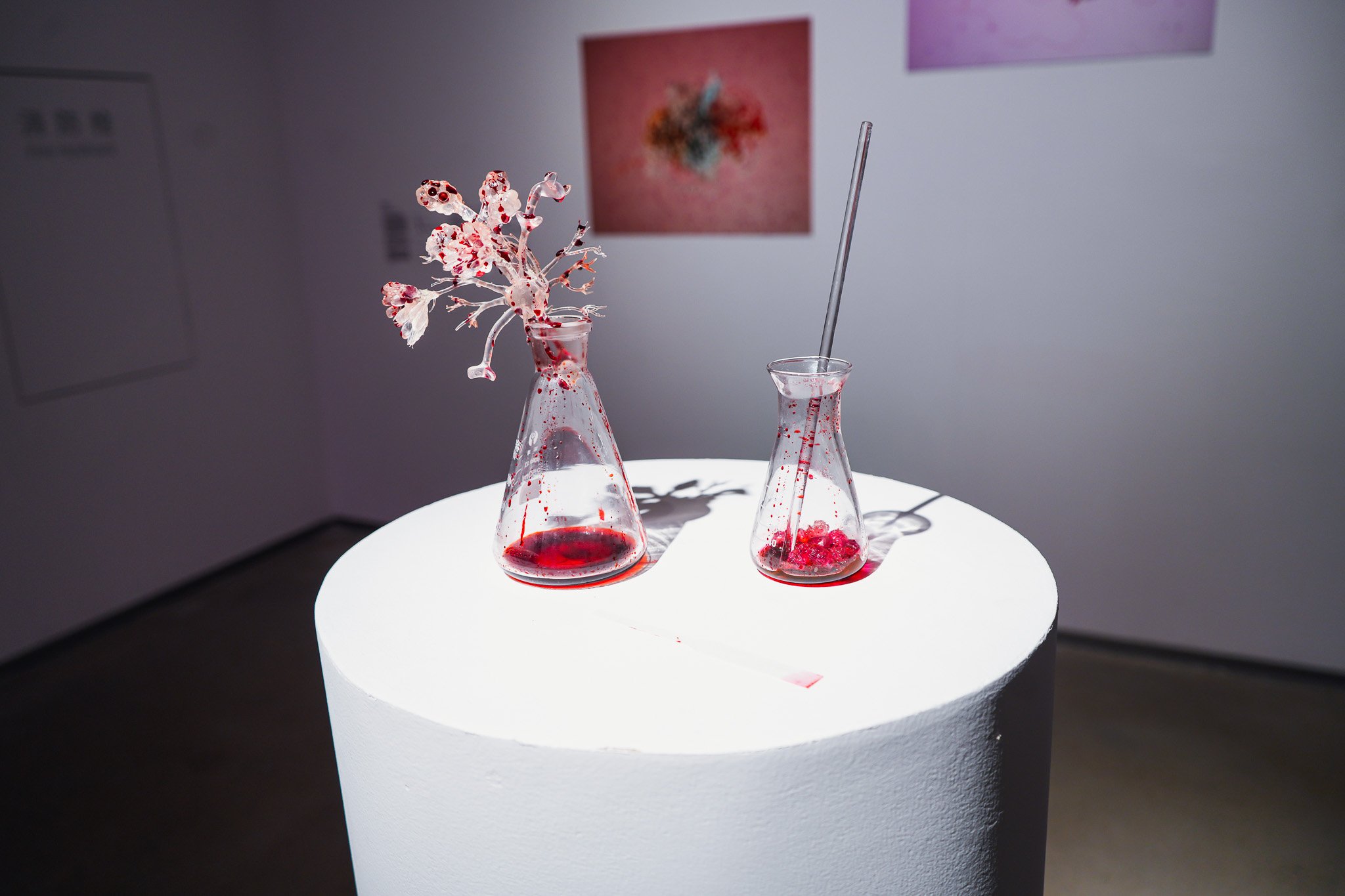
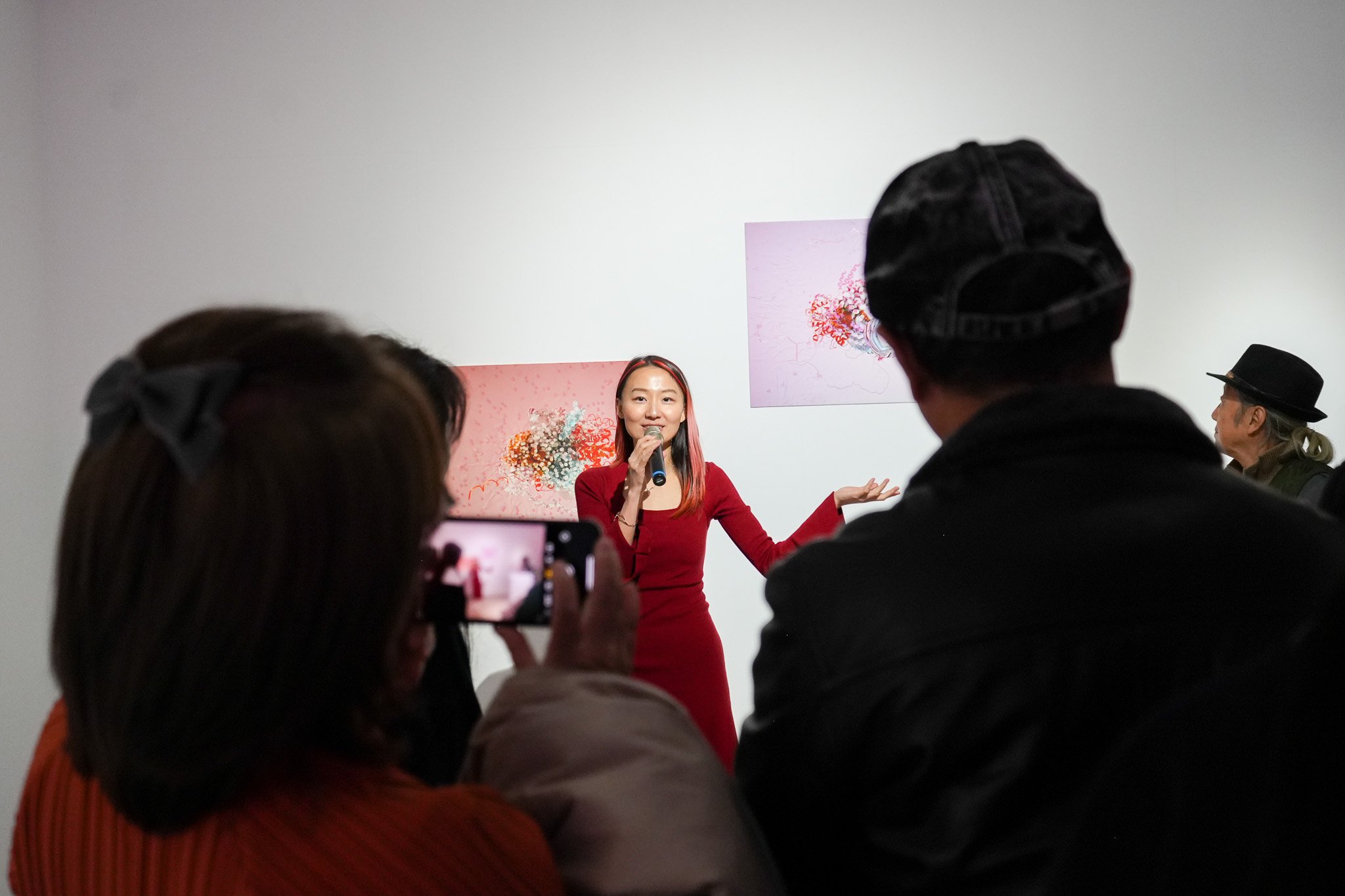
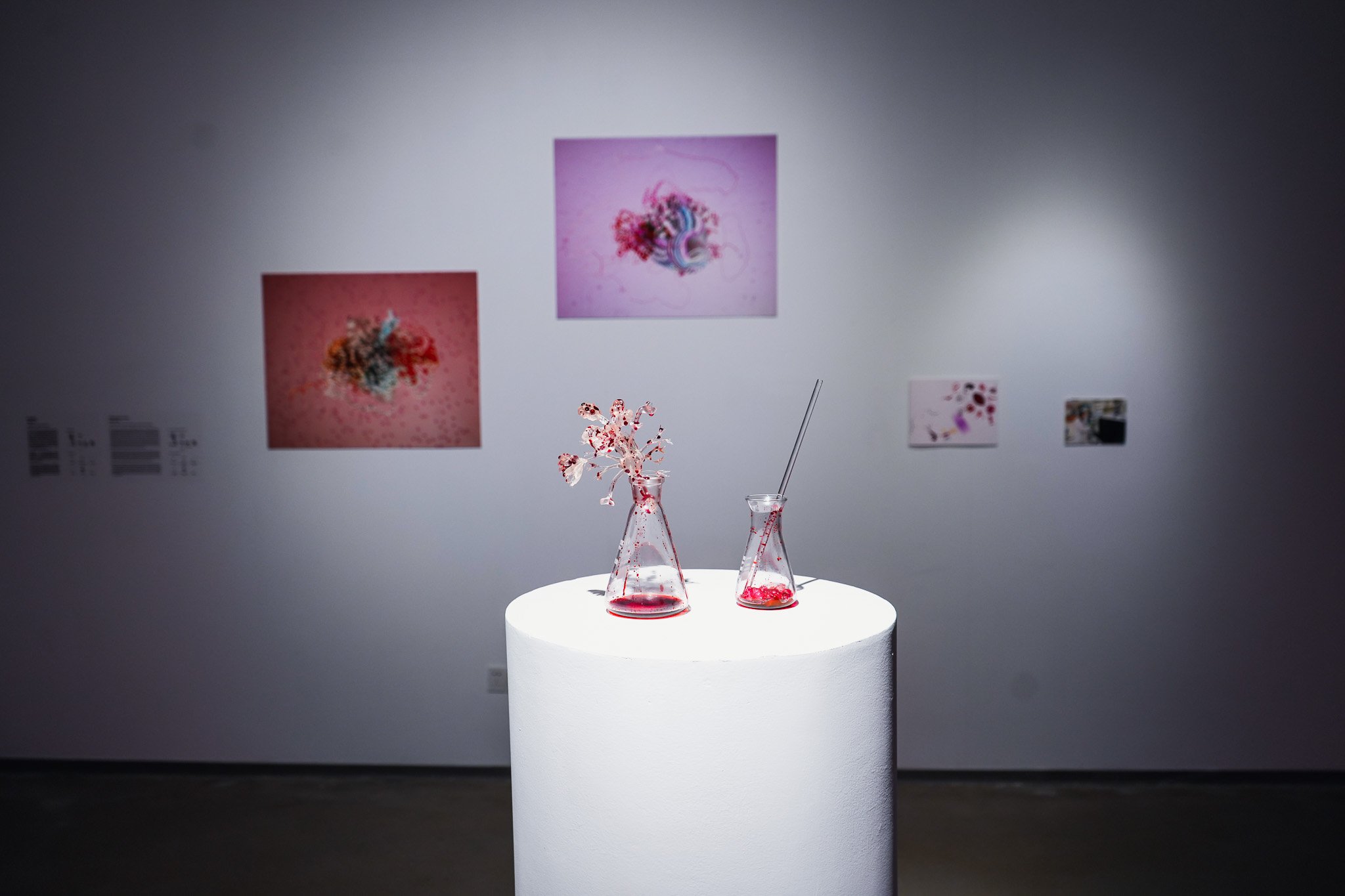
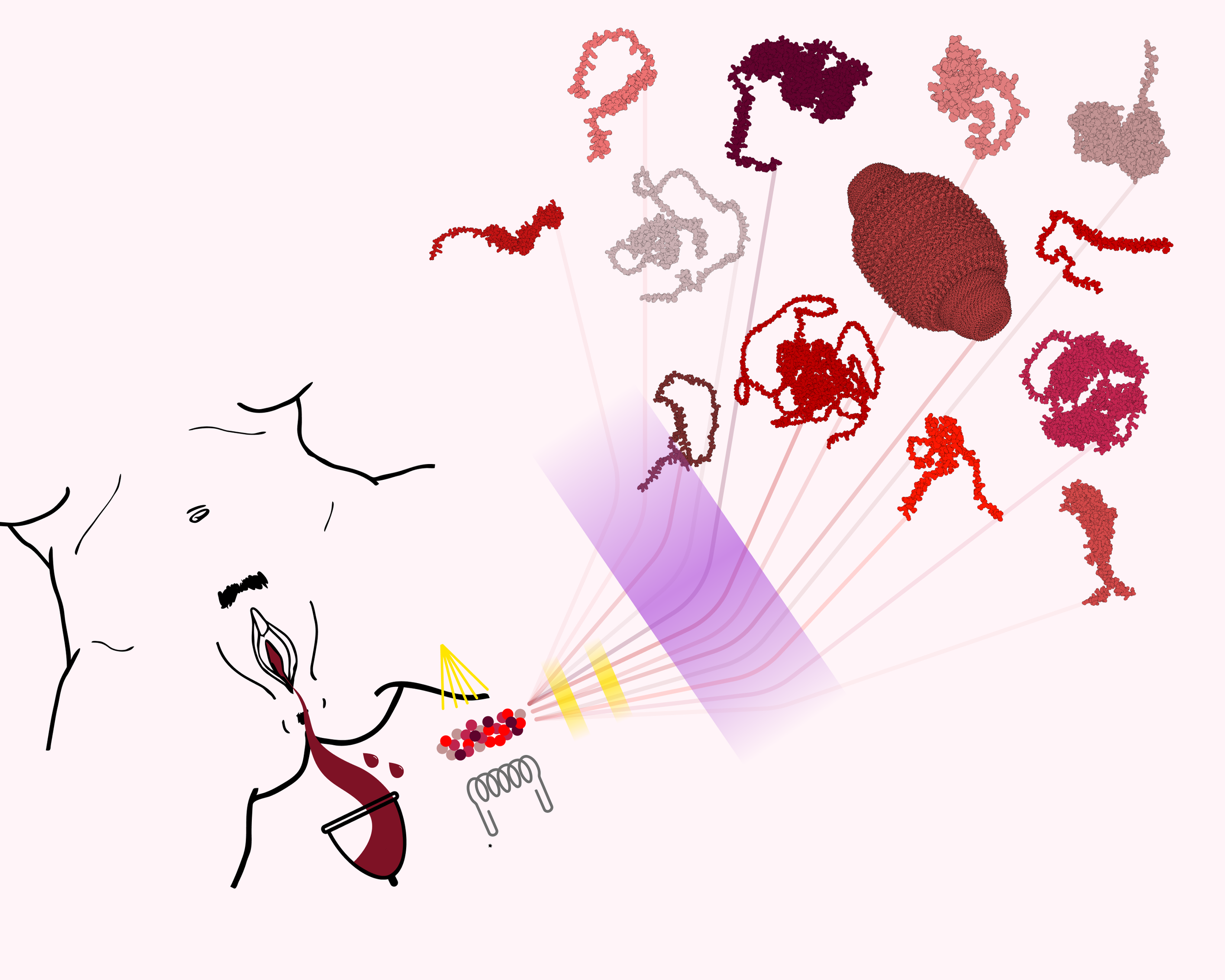
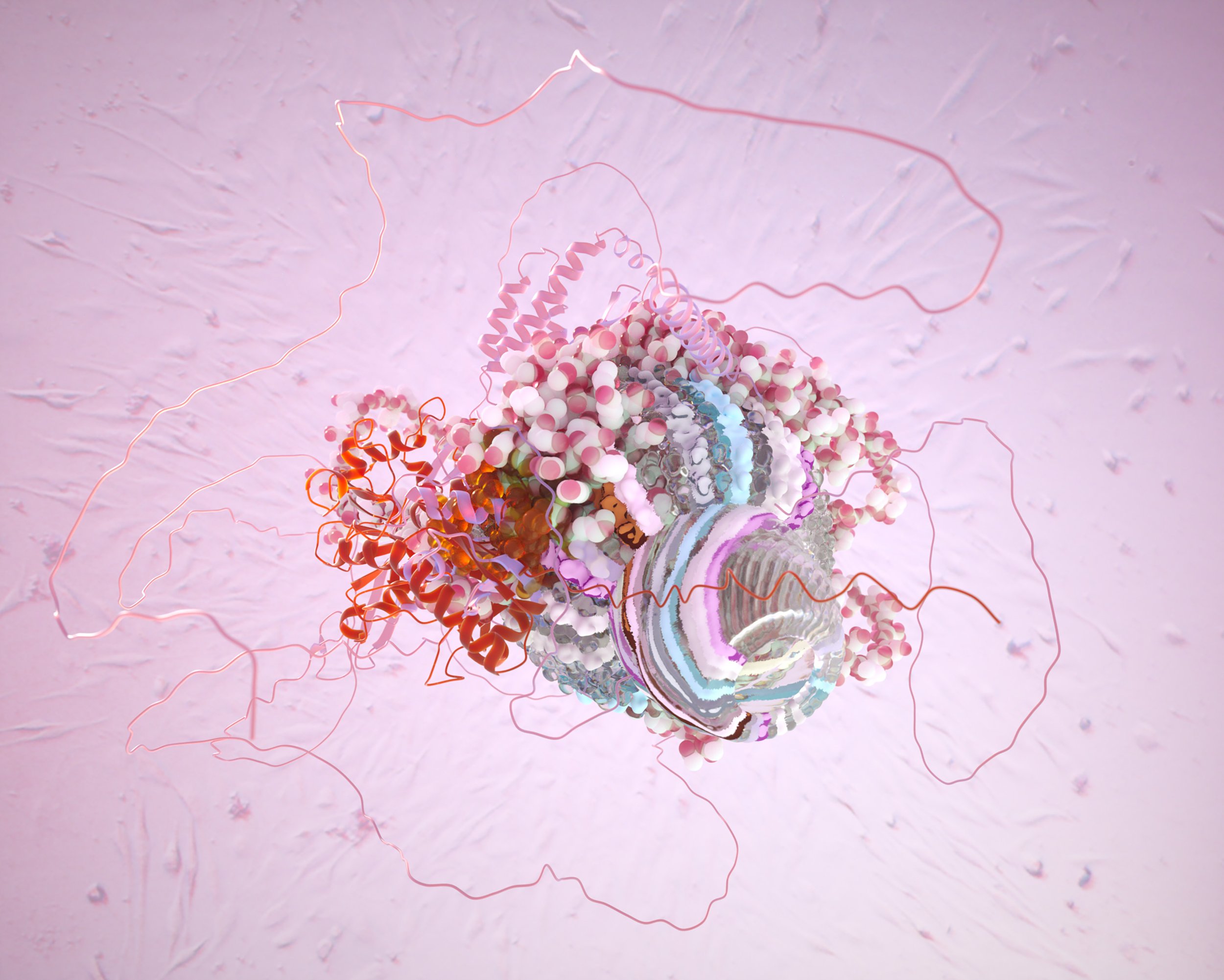
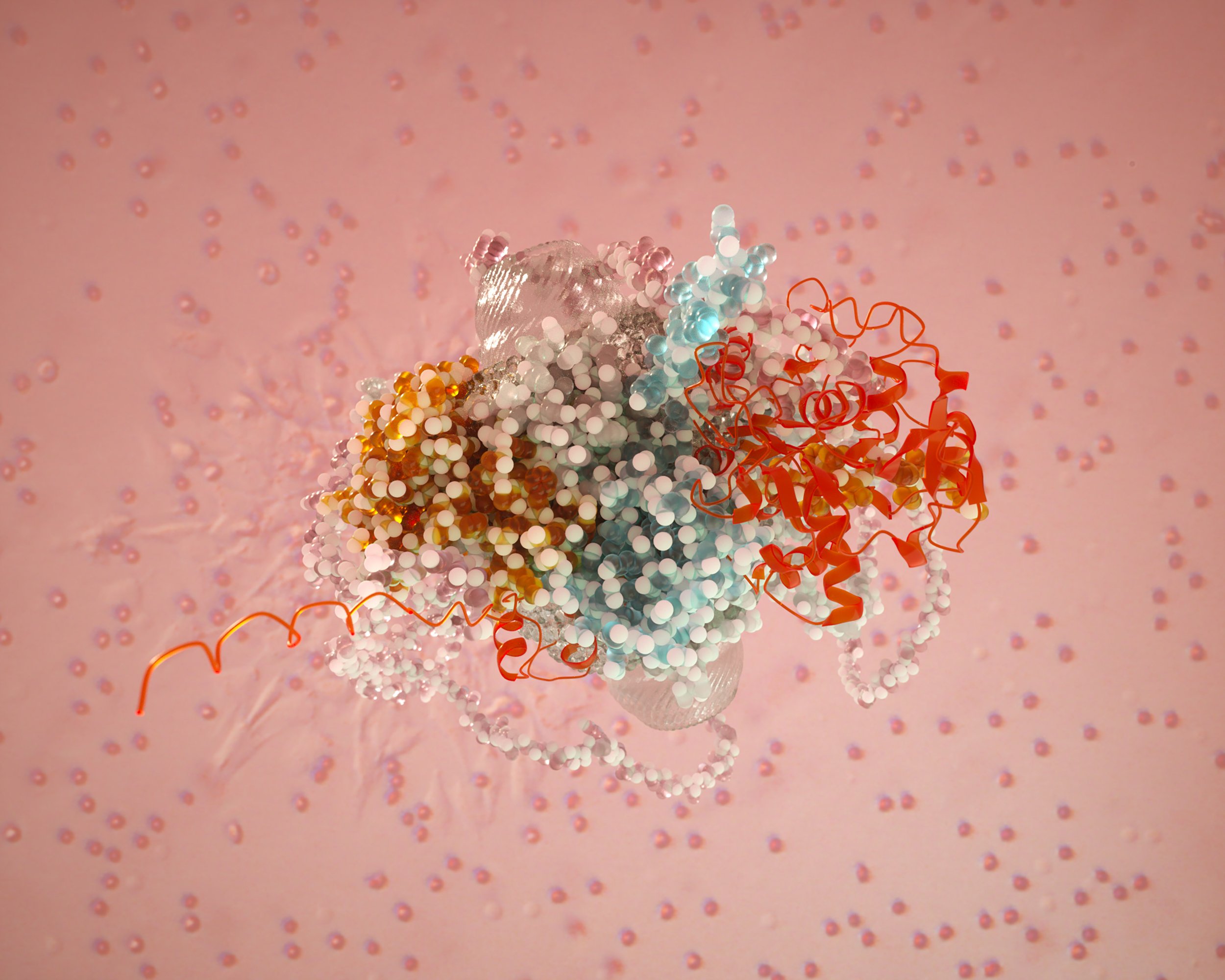
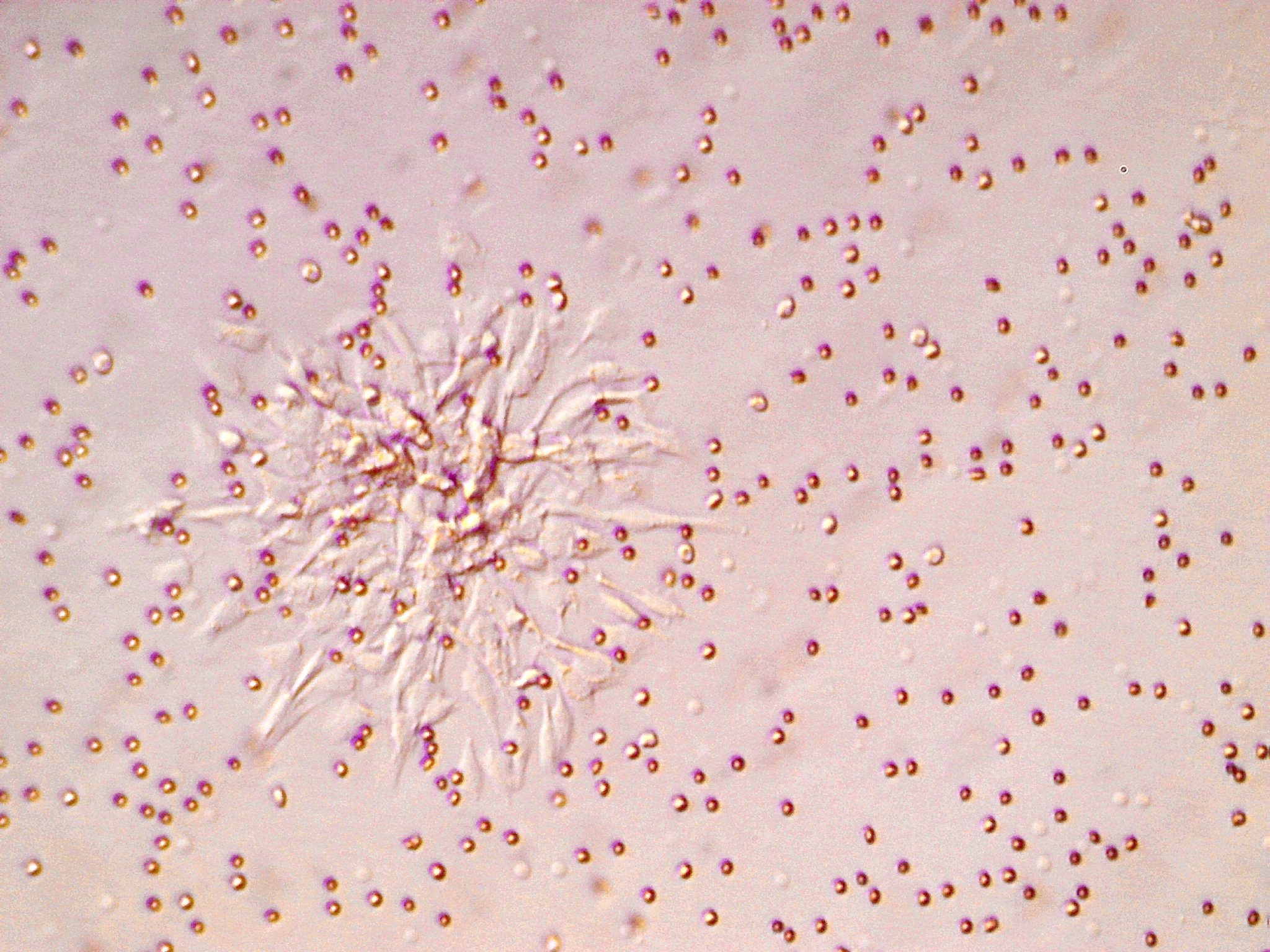
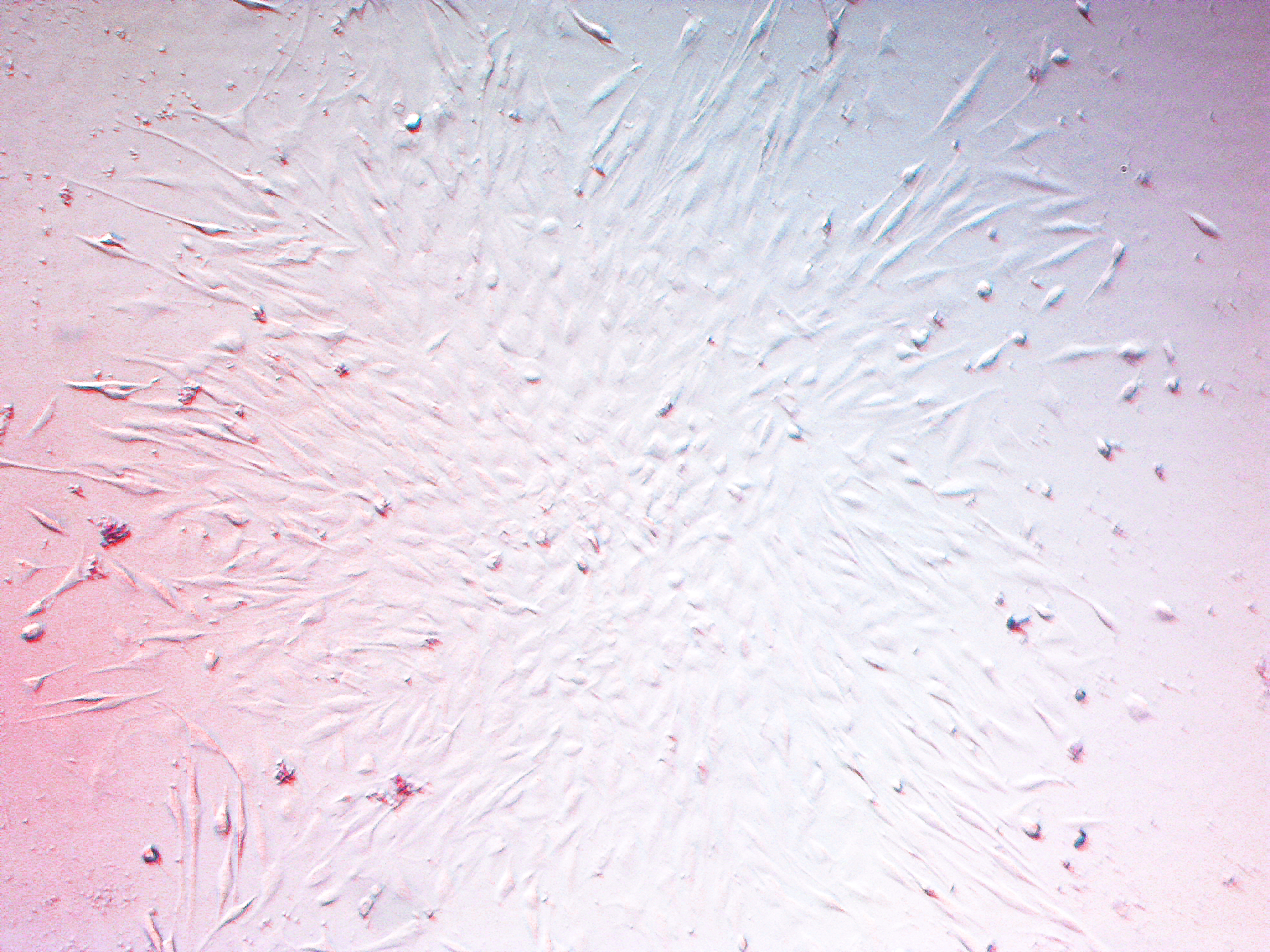
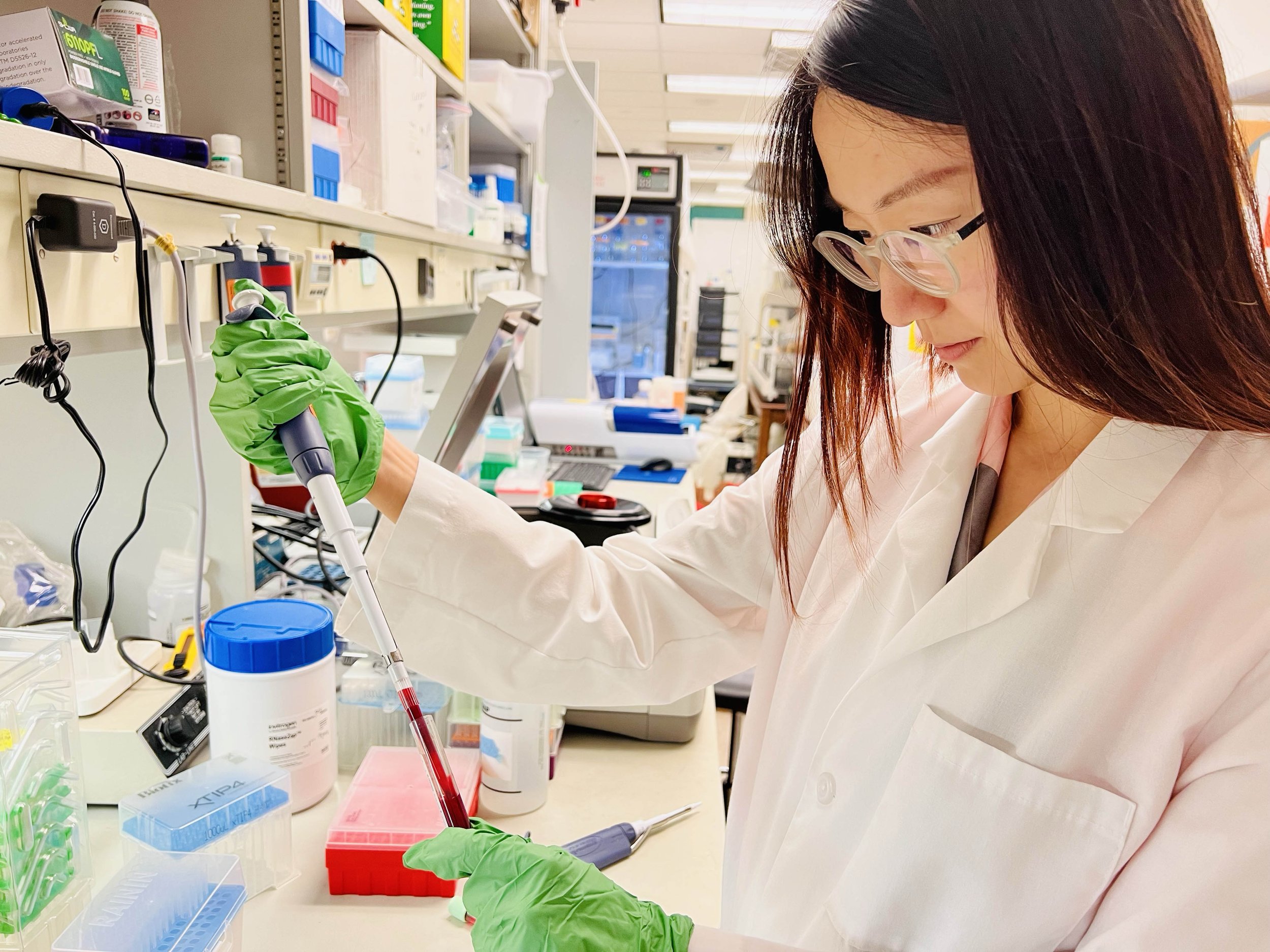
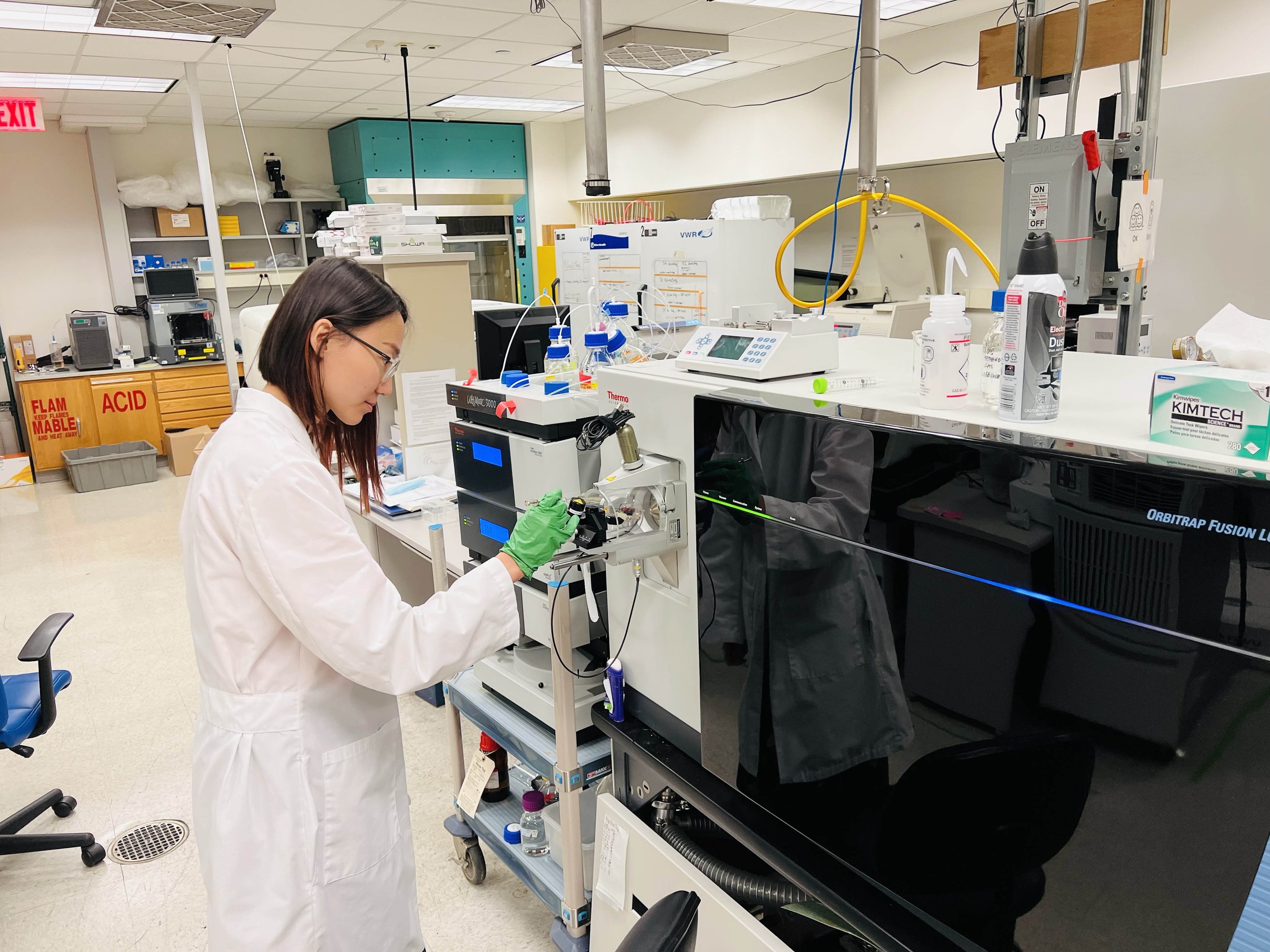
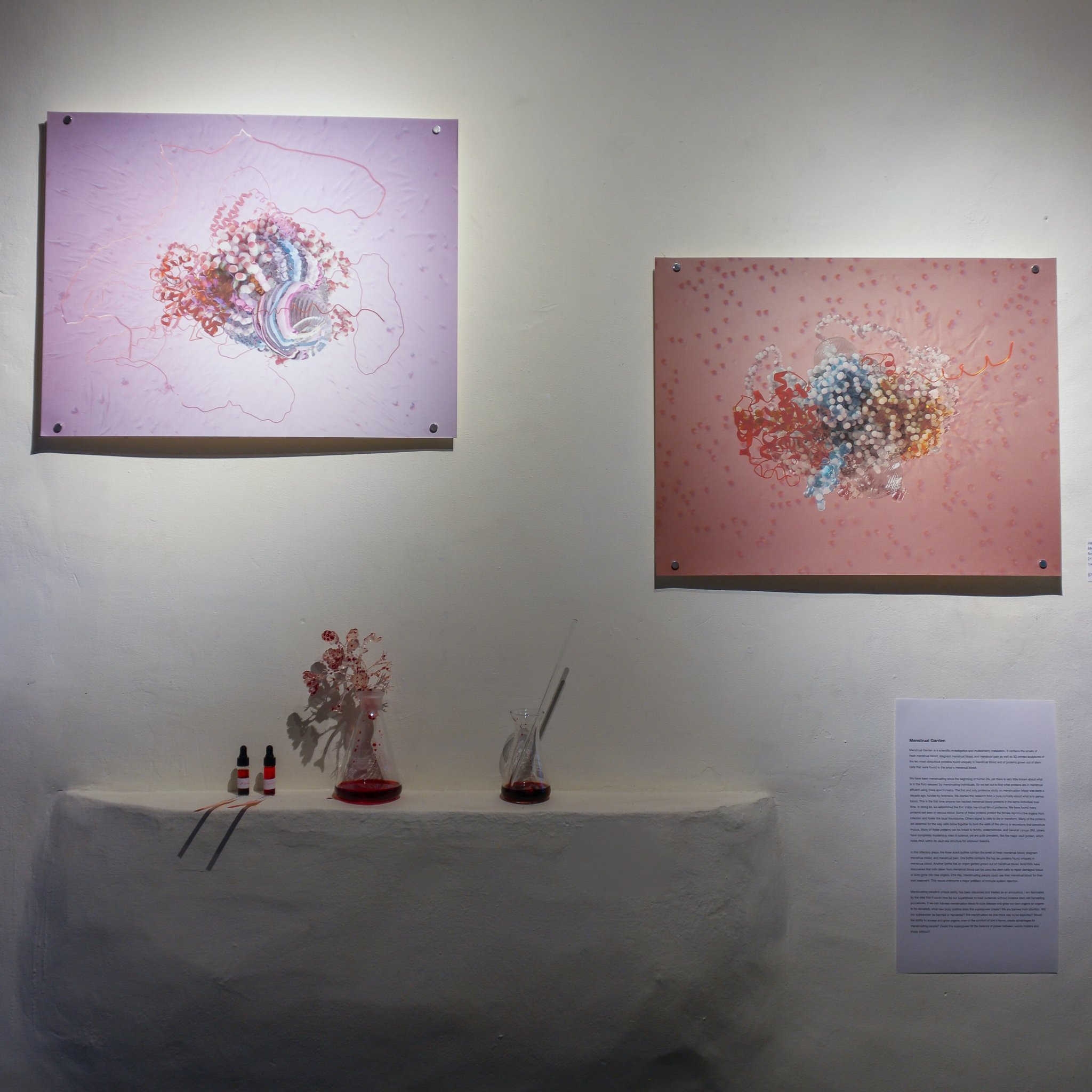
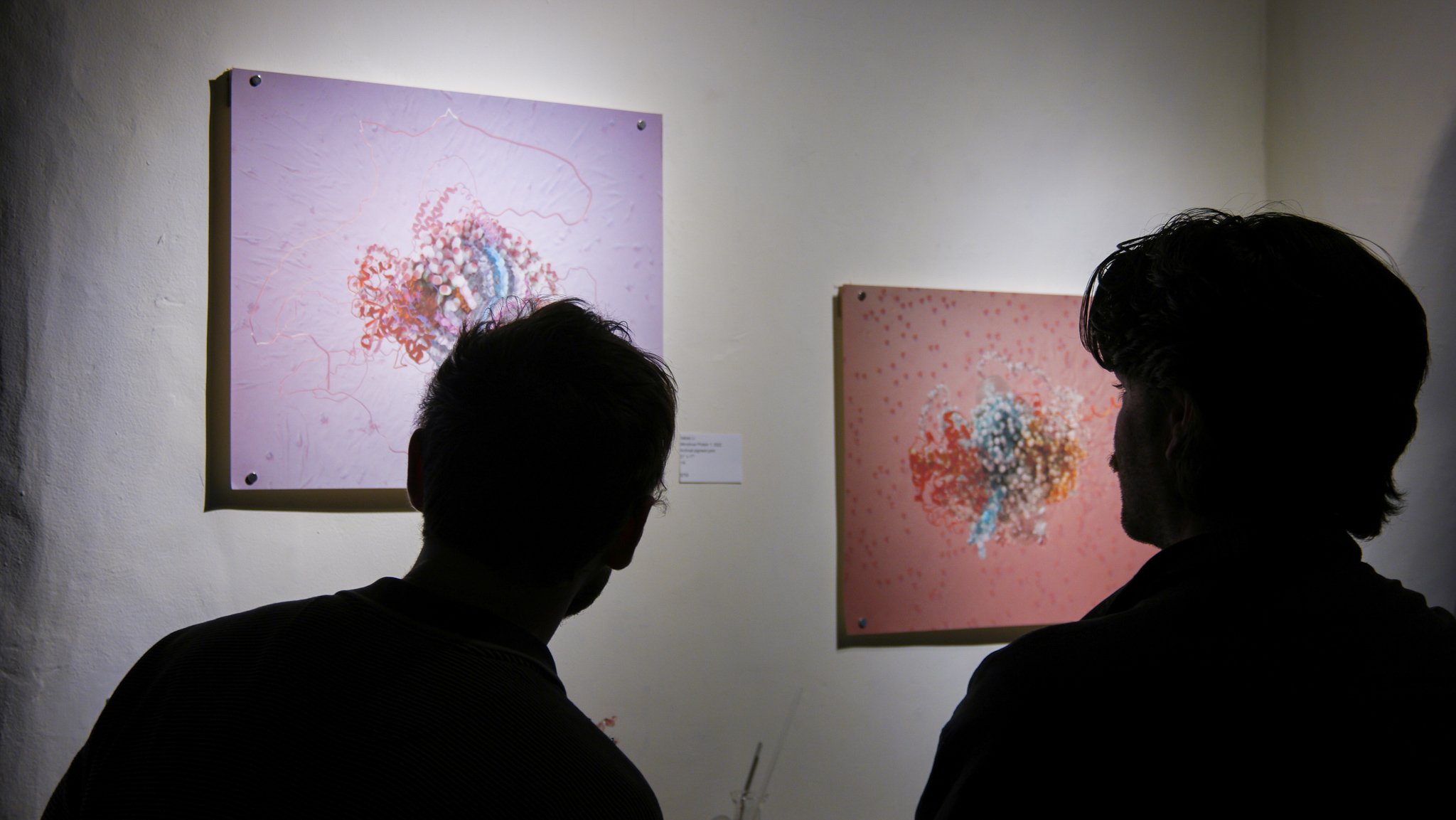
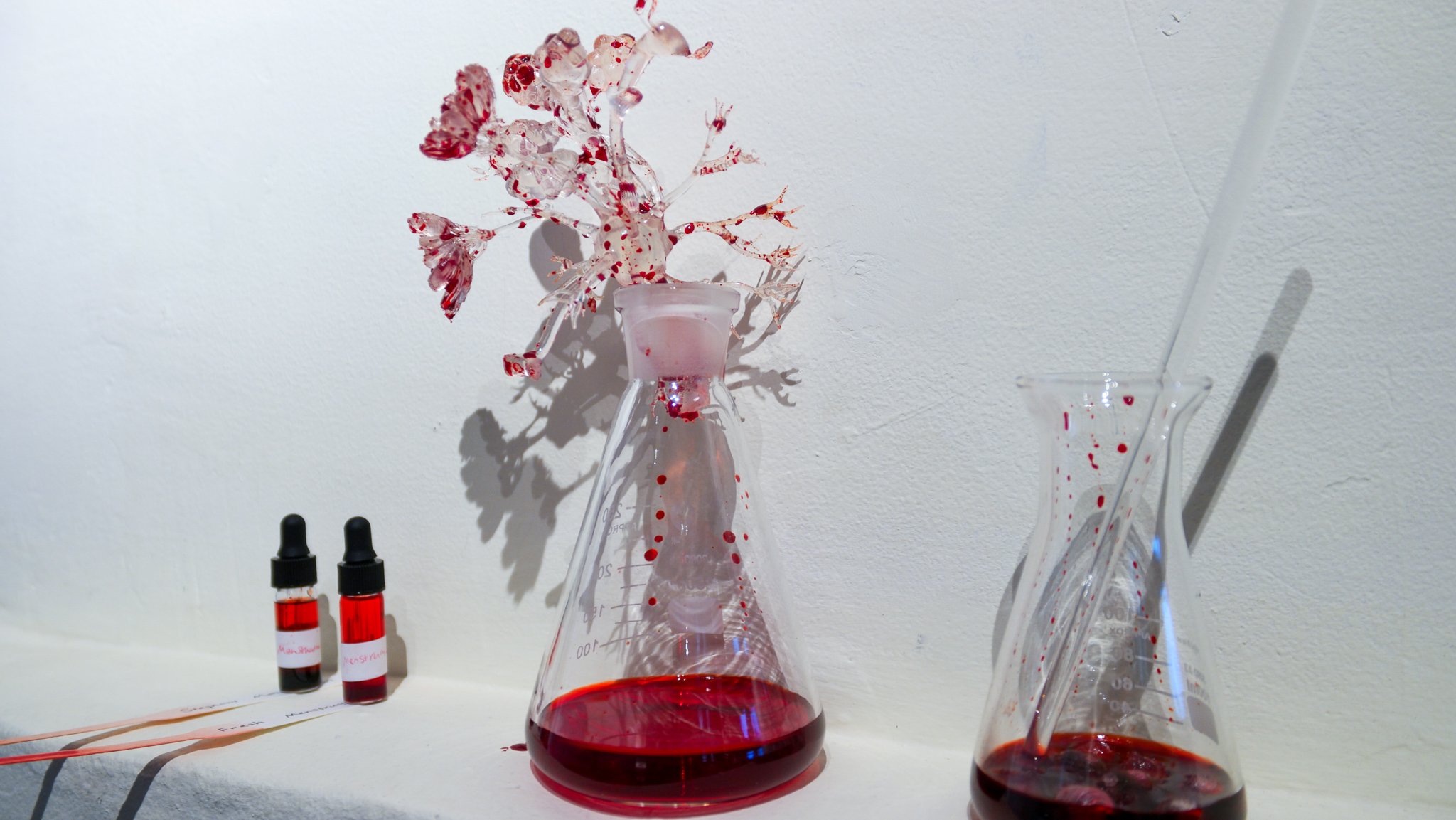
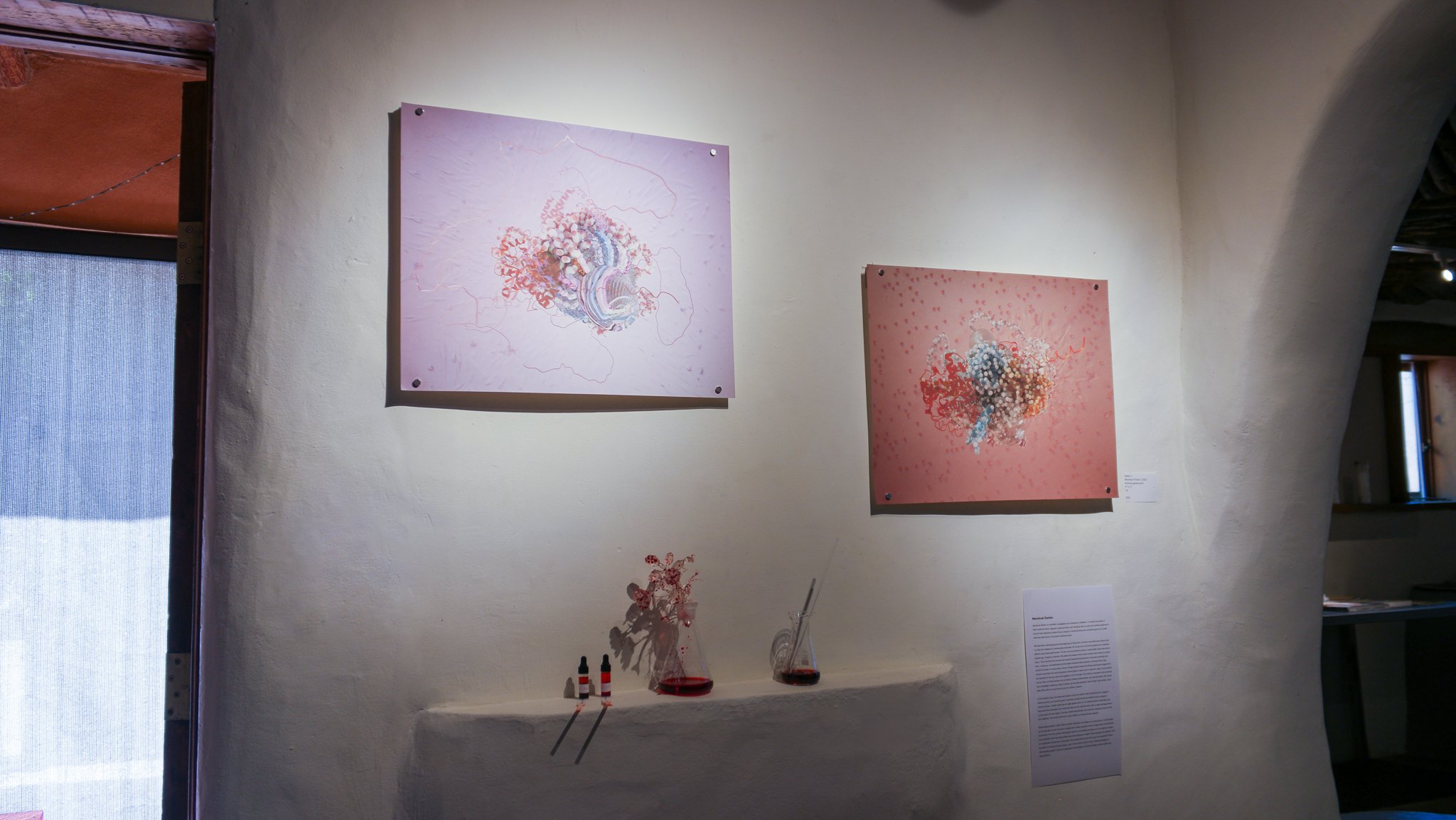
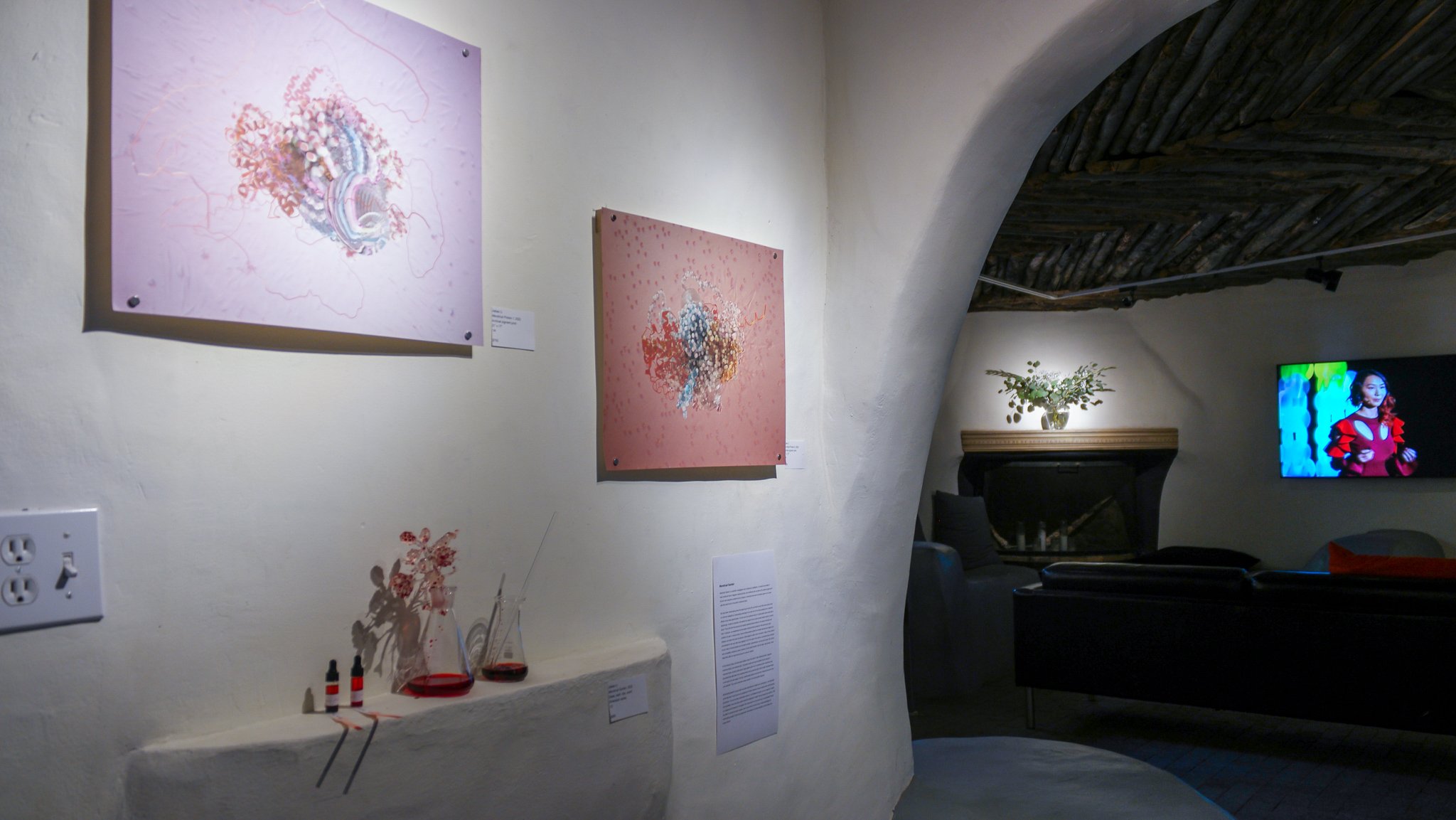
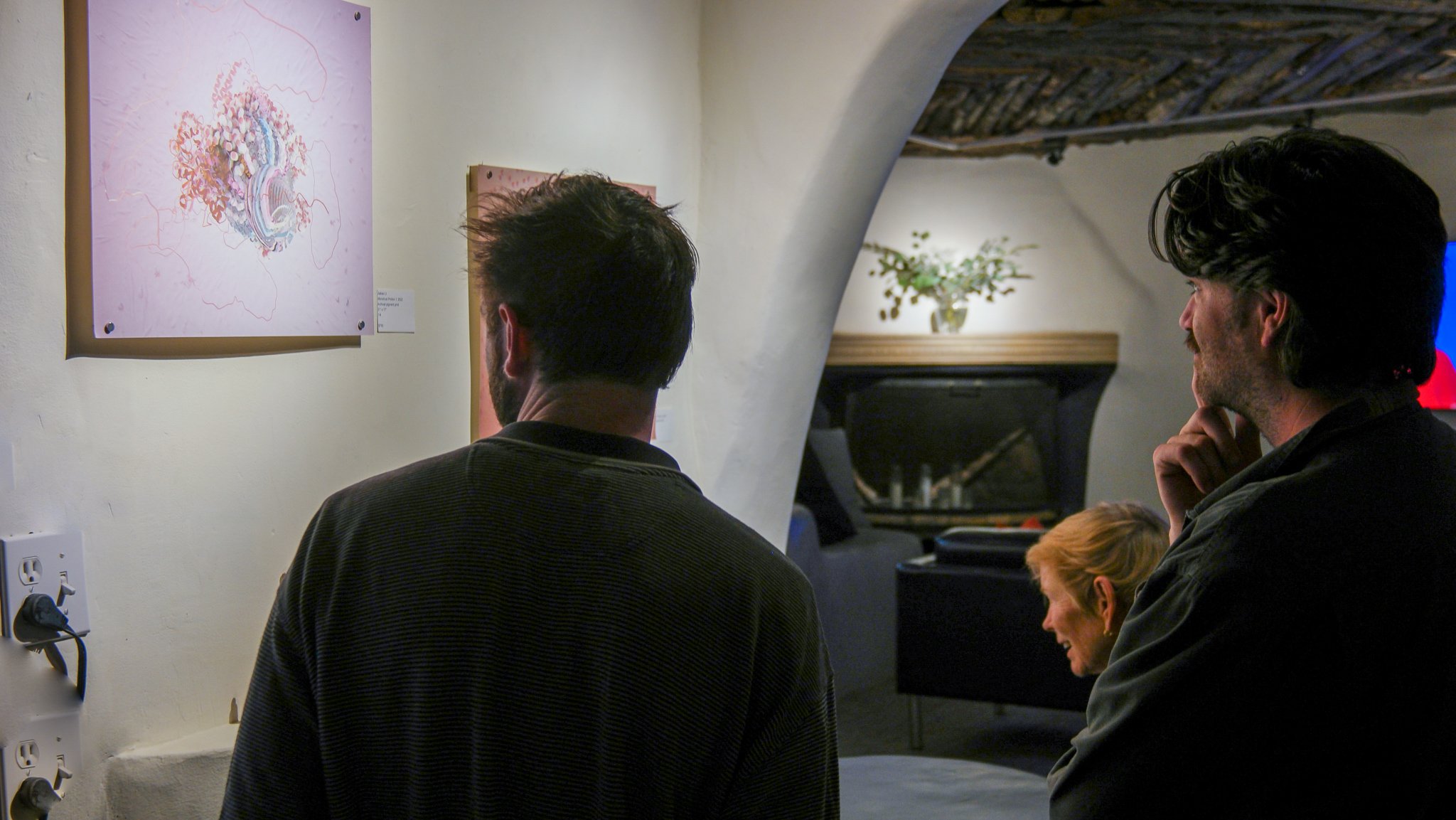
Science Collaborators: Cooper Galvin, Momo Sae-Lee, Edward Marcotte
Scent advisors: Andreas Keller, Saskia Wilson-Brown







